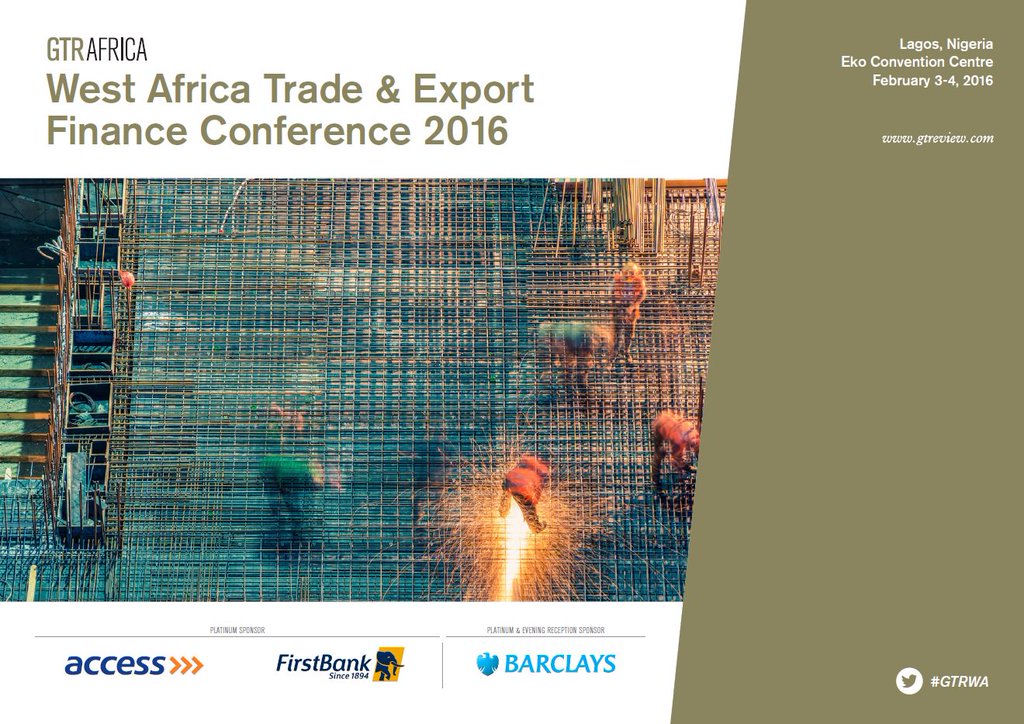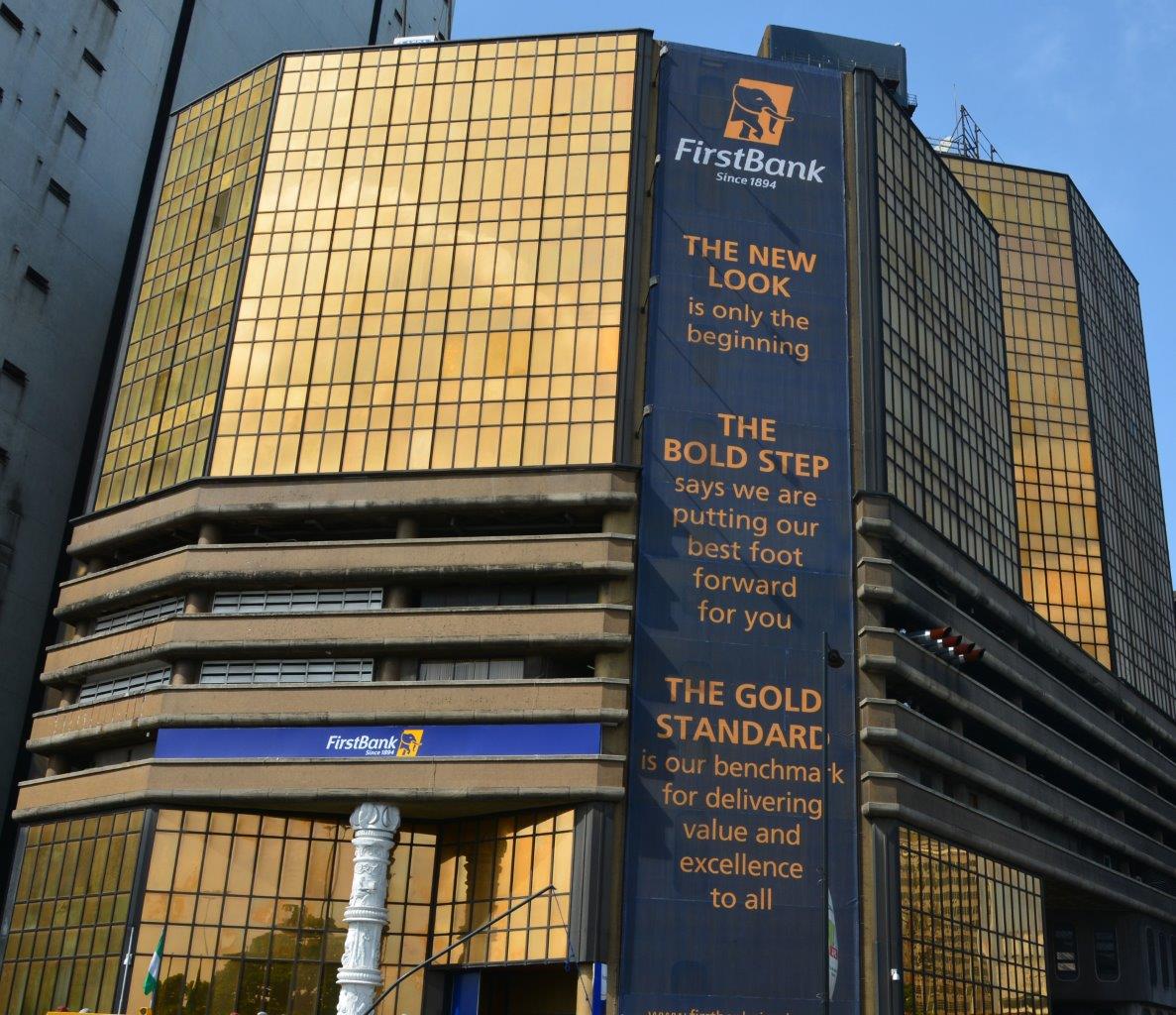What’s the future of Africa trade finance?
Trade finance presents huge opportunities in emerging markets such as Africa. We spoke to Mr Ikenna Egbukole, Head of Structured Trade & Commodity Finance at First Bank of Nigeria about the growing need for trade finance to encourage Nigerian entrepreneurs to trade internationally.
What does FirstBank do? Tell us a bit about the company.

The Bank has international presence through its subsidiaries, FBN Bank (UK) Limited in London and Paris, FBNBank DRC, FBNBank Ghana, FBNBank Gambia, FBNBank Guinea, FBNBank Sierra-Leone and FBNBank Senegal, as well as its Representative Offices in Johannesburg, Beijing and Abu Dhabi.
We can be said to be the “Traditional Bank” for Nigeria having been in existence for over 120 years. In 2008 First Bank through its UK subsidiary FBN UK set up a new business development initiative covering the structured trade commodity finance (STCF) business with a focus on origination of new transactions across the commodities sphere, providing bespoke solutions to manufacturers, producers and traders of commodities.
We offer a wide range of structured trade finance solutions as listed below:
- Pre-export finance
- Pre and post shipment Export Finance, with or without hedges
- Import and export financing
- Pre-payments
- Stock, storage and inventory finance
- Back to back payment instruments
- Discounting / refinancing of payment instruments
- Discounting of receivables / invoices / contracts
- Syndicated Debt Transactions
- Structured Letters of Credit trades
- Sourcing local and international (multilateral and bilateral) debt funding on a limited / non-recourse basis
- Securing Export Credit Agency (ECA) backed funding to facilitate the participation of International Commercial Banks
- Tradable silo certificate financing
- Un-tradable silo certificate / warehouse receipt financing
- Tolling
- Collateral monitored structures
- Collateral managed structures
Why is FirstBank Nigeria growing its trade finance presence in Nigeria and beyond?
STCF provides a secured, innovative and flexible financing technique to support commodity producers and traders in emerging market. At FBNL we put our customers first and we prioritize the customer’s access to new financing opportunities as obtainable in grade “A” markets. In Africa today, the need for trade financing is increase more than ever before. Trade flow over the years and commodity price has been on the increase while local finance institutions often are unable to take on the additional credit risks. As a result, there is shortage of financing for local commodity producers and even multinationals that are active, thereby creating a financing gap. FBNL saw this as a great opportunity to support its bourgeoning customer base and enlarge its base in sub-Saharan Africa.
Our presence in sub Saharan Africa will ensure proper analyses of both the local and international commodity changes and with increase in our focus in Africa counterparties we will become the right partners for trade in Africa.
Why Africa? – What are the trade finance opportunities and why now?
The need for financing trade in Africa is more essential now than ever before. Africa being an emerging economy can only be supported using STCF solutions. This is due to the inherent credit risk involved in commodity finance. Banks need to track the trade flows from the producer to the final international offtakers by ring-fencing transaction.
Many companies in Africa today that are into commodity trading and production find it very difficult to access funds from financial institutions. Using structured trade finance solutions traders in Africa can access a wide range of alternative financing without using the conventional methods of bricks and mortar securities. With this alternative we can grow the increasing opportunities in Agriculture (soft commodities), Mining and Metals; Oil & Gas and other natural resources that are abundant in Africa.
The prospect is huge and the finance gap is also enormous amidst high endowment in commodities of various types. Providing funding in this space will undoubtedly ensure a mutually beneficial relationship among all stakeholders.
What are the changes in trade finance that FBN has seen over the last year?
Trade has been the essence of human sustainability from time immemorial. It has witnessed different phases from the traditional approach to the current sophisticated pattern. Providing finance for trade has followed this trend over the years.
STCF has provided a new dimension to providing funding through the provision of bespoke financing to each trader / producers. Structured Trade finance has a fitted solution that provides cover for all parties (producers, traders and lenders) in a transaction, transferring the risk from parties less able to bear the risk to those more equipped to bear them.
You’re speaking at the 7th Annual West Africa Trade & Export Finance soon; what trends will you be talking about in terms of trends within West African Banking Sector?
The focus of the discussion centered on “Tracking trends within West African banking sectors”. This delved into the banking SMEs and the way forward in Nigeria. Discussions were also around need for devaluation of naira and the prospect of doing business in Nigeria in the next 10 years.
While it was opined that devaluation is required, it is not in itself sufficient as enabling environment is required to harness the economic advantages of this monetary tool. Stable power supply and sound infrastructural environment is a foundation on which devaluation could spur improved production and exportation for FX generation. It is expected that with the framework of the current government, wastage will be blocked and economic priorities will be highlighted for sound developmental process. We hope for better business environment in the nearest future.

How do you see trade finance changing in the next year?
Trade finance is a very profitable business for banks. The cross-sell opportunities, ancillary revenues and mitigation of risk using structured approach will continue to make it lucrative business for banks.
Global trade will continue to rise irrespective of the declining price of commodities especially crude oil. Bank will also continue to play a major role in providing the finances which will be well mitigated using structured trade solutions.
With the arrival of digital technology such as blockchain and changes in payments technology how is FirstBank equipping itself to be at the forefront of technology in global trade?
First Bank has pioneered trade friendly applications to enhance robust activities around trade.
The progress First Bank had made in trade finance is further buttressed by its consistent win of the ‘Best Trade Finance Bank in Nigeria’ by Global Finance Awards for seven years including 2015. Trade alert is one of the major applications First Bank has invested in.
We are well positioned to sustain the leadership role as the Best Trade Finance Bank in Nigeria by extending our traditional trade finance products with sophisticated technological innovations and supply chain offerings which are the key drivers of growth.
 Australia
Australia Hong Kong
Hong Kong Japan
Japan Singapore
Singapore United Arab Emirates
United Arab Emirates United States
United States France
France Germany
Germany Ireland
Ireland Netherlands
Netherlands United Kingdom
United Kingdom






Comments are closed.